- OT
- Life in practice
- Practitioner stories
- Remodelling eye care: the changes the industry expects
The discussion
Remodelling eye care: the changes the industry expects
16 ECPs tell OT what they think the next year will bring, from increased reliance on domiciliary care to long-term changes to sight testing

04 May 2021
A collaborative approach: Ceri Smith-Jaynes, optometrist at Cottam & Glaister, Lytham St Annes, and OT clinical multimedia editor
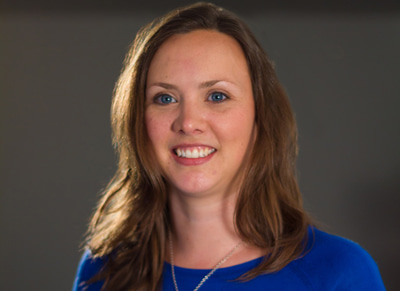
“If the COVID Urgent Eyecare Service (CUES) proves to be successful, I’d like to see it become a permanent feature, with properly funded teleoptometry embedded in the system.”
Increased demand for domiciliary services and focus on infection control: Zetun Arif, ophthalmic director of Specsavers Home Visits and chair of chairs for Specsavers Domiciliary

“Also, we do expect more people to access domiciliary services as the pandemic has raised awareness that there is an alternative way to access eye care for people with mobility issues.”
Technological advances, further moves to online dispensing, and increased chances for optometry to step up: Gerard Fernandes, optometrist director at Lynne Fernandes Optometrists, Bristol
“I think patient care will continue to divide between those who can pay and those that rely on the NHS. Privately, clinical independent practices will develop schemes to provide excellence in eye care.
“Those companies that rely on volume testing will increase their market share.
“Telemedicine is here to stay because it’s safe and easy. The AOS system, supported by CooperVision, has been a revelation for our practice.
“Dispensing will continue to move online. If you can buy glasses for less than £10 online and if they can be ordered, made and delivered in four days, why wouldn’t you? However, if the dispensing experience is a personalised style consultation for everyone, some will still consider it.
“As hospital waiting lists go up, busy ophthalmology departments will struggle to cope. There will be an increase in the brain drain to private ophthalmology providers, causing a circular problem. Optometry can fill this void. Initially this will have to be private, as commissioners react and act slowly. Can we prove our worth? This means new standards, audits, systems.
“Dry eye and myopia management will continue to grow, and will provide an opportunity for community clinicians to treat and manage ocular conditions that Hospital Eye Services (HES) are not interested in.
If regulation changes, those who have trained to think and make structured decisions will continue to prosper. If we can be more human, and embrace technology and feel empowered by change, patient care will improve
“Automation will increase. We’re used to having an optometrist test vision, but in truth artificial intelligence and tech is better. Look at Moorfields’ Deep Mind system, and OKKO Health’s game apps. If regulation changes, those who have trained to think and make structured decisions will continue to prosper. If we can be more human, and embrace technology and feel empowered by change, patient care will improve.”
Increased levels of care: Priya Popat, optometrist at Specsavers Norton, Sheffield
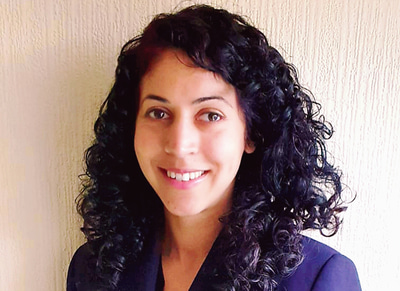
“Teleophthalmology has been invaluable for reducing referrals to HES and building communication between optometrists and ophthalmologists. We use the Consultant Connect mobile app, which makes it easy to upload photos and details for a second opinion prior to referral. The ophthalmologist usually responds within a day, with guidance on how to manage the patient. I hope that this continues post COVID-19, saving people the worry and inconvenience of a hospital visit and saving the NHS money.”
I’ve seen a huge surge of patients that normally would’ve gone to a GP or hospital, and they’ve been very grateful for this service
Improved care and communication with hospitals, subscription models, and more technology: Tushar Majithia, optometrist and AOP Councillor
“The pandemic has forced us to adapt the way we deliver eye care, and we will look to take some of the positives out of the changes to enhance our patient care.
“The use of telephone and video consultations has proved a very convenient way to triage and manage minor eye problems for our patients, and it is likely that we will continue to offer this service going forward.
“The extended appointment times that we introduced for the pandemic has meant that we have been seeing fewer patients, but this has significantly improved the patient experience and the level of care we can provide. The feedback from our patients has been positive, with many reporting that they felt that they have had a comprehensive consultation, and they felt secure and relaxed during the visit.
The limitations of GOS have meant that many people are having to pay privately to access eye care. The subscription-based model of eye care is a growing opportunity for our business, and enables us to provide a better level of care to our patients
“Many of our patients have experienced significant delays in their outpatient appointments at hospital eye clinics during the pandemic and have arranged to see us for consultations, either for reassurance or because of concerns about their eye condition. We have been able to feedback the results of assessments to the consultants and, where necessary, have been able to get the patients back into the eye clinics or in for treatment more quickly. Going forward, we believe that type of collaboration with secondary care will increase and serve the best interests of the patient.
“Our Eyecare Plan provided us with a steady income stream and really helped our cashflow during lockdown. The limitations of GOS have meant that many people are having to pay privately to access eye care. The subscription-based model of eye care is a growing opportunity for our business, and enables us to provide a better level of care to our patients.
“We have invested in Essilor Visioffice digital technology to enable us to take precise measurements during the dispensing of spectacles in a socially distanced way. This has transformed the dispensing process and allowed us to offer a wider range of personalised lenses to patients. With the increasing use of digital devices and leisure activities, we are seeing a greater demand for occupational, lifestyle and personalised lenses.”
Increased pathology and infection prevention: Judy Lea, optometrist partner, Specsavers Longton
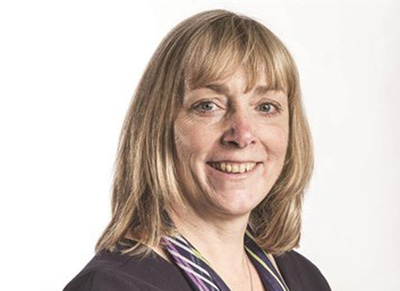
“As hospitals had to delay routine appointments last year, there are huge backlogs in secondary care. I think that HES will turn to optometry, with more schemes to share this workload. They are simply not going to have the manpower or appointment slots to catch up, even with extended clinics in evenings and weekends.
“Additionally, I think infection prevention measures will stay for many months or years to come. Although the COVID-19 infection numbers have reduced, it won’t completely disappear. We’re seeing new strains appearing, so I think there will be an expectation for healthcare settings to continue to recognise and mitigate for viruses.”
Making CUES permanent: Ashley Jardine, clinical director at Orrell Opticians in Ellesmere Port, part of Hakim Group
“In Cheshire, we were fortunate to have CUES launch in 2020. It was a successful start for all stakeholders, especially patients, who are grateful to receive fantastic eye care within a familiar and convenient setting. Reducing the burden on our local eye department is also a huge benefit whilst the NHS has been under immense pressure.
“With a recent investment in Optomap technology, our CUES patients benefit further as we can now liaise with ophthalmologists via the OPERA IT system. They review images remotely and help manage patients in an efficient and effective manner.
“Looking ahead, we hope this cost-effective service is a permanent change and a silver lining on the pandemic.”
Changes for pre-regs and a greater role for community optometrists: Lily Traynor, optometrist, Specsavers Sale
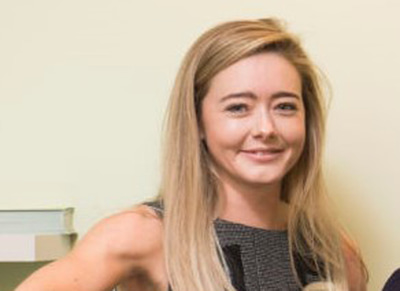
“Given the challenges and demands other primary care clinicians face, delivering vital services for patients with minor eye care issues is becoming increasingly difficult, so I see community optometrists playing an even greater role in providing frontline care over the next 12 months.
“Community optometrists have provided outstanding levels of care throughout the pandemic, so public perceptions have already shifted and I think this will only increase this year as we become the first port of call for patients with minor eye care concerns.
“I also think there will be a shift in focus in the way pre-registration optometrists approach their training, moving away from box ticking processes of old, towards a more patient-centred, symptoms-based examination, meaning an overall more efficient, caring approach.”
Opportunities within the contact lens space: Russell Peake, head of contact lenses at Specsavers
“Over the next 12 months, as people hopefully return to working in offices and social lives become a little livelier, we need to be prepared to meet new contact lens demand. With PPE and face coverings likely to remain for some time, we can continue to enhance patients’ lives with contact lenses by removing the frustration of steamy spectacles. Flexibility of wear is going to be key for our new and existing contact lens patients. In practice, brilliant lifestyle-led conversations are going to be crucial in ensuring the clinicians find the perfect solution.”
Changes in sight testing: Dr Christine Astin, senior hospital optometrist
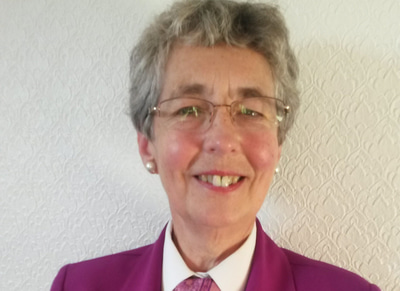
“Those practitioners with independent prescriber (IP) qualifications or Minor Eye Conditions Service (MECS) certificates will be particularly welcome when carrying out eye examinations and possibly treating some conditions.
“Some members of the public will take their eye care seriously and want a thorough set of ocular tests and eye examinations. They may be prepared to pay for an ocular health MOT session, as they are used to paying for their car’s MOT test. The NHS fee is unlikely to cover this.
“However, some people will have limited time available, and many will take their ocular health for granted. Some won’t be bothered to make and keep an eye examination appointment.
“During lockdown, people got used to ordering items online and having them delivered. They may not choose to give up this advantage and return to the old methods of making appointments and travelling to a practice to choose and later to collect spectacles.
“Decades ago, if a customer wanted a personal photograph, they booked an appointment and visited a professional photographer. Then for convenience along came the photo booth. Will their sight test in future be carried out in a similar cubicle? Nowadays, most people just take a ‘selfie’ anywhere, at any time, using their mobile phone. With new advances in technology, could people now also do basic vision tests on their phones or computers?
“I suspect the incidence of this third tier of sight test, using mobile phone and the internet, will increase significantly. Obtaining new spectacles via these methods is already gaining momentum.”
Taking lessons from the pandemic forward: Ross Campbell, professional advancement consultant and ophthalmic partner at Specsavers Swaledale & Northallerton
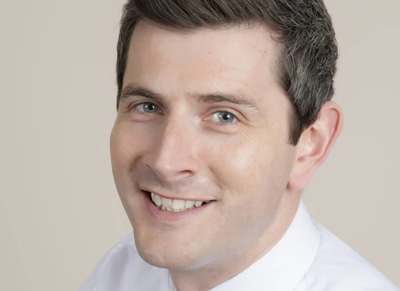
Pushing the boundaries of practice: Jill Campbell, ophthalmic director at Specsavers Lisburn
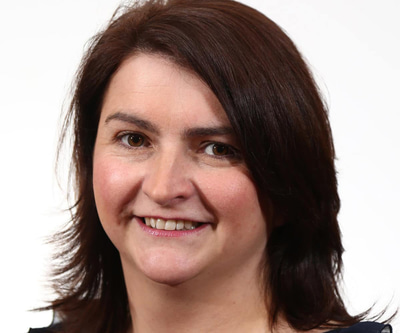
“With ever-increasing NHS waiting lists, our profession has a new opportunity to engage with the NHS and to continue to push the boundaries of our scope of practice to treat, manage and monitor a wider range of eye conditions locally, such as the shared care ocular hypertension scheme in Northern Ireland.
“As for technology, patients’ expectations have changed. Remote care has increased their ability to access eye care where and when they most need it. We will see an increase in demand for this convenience and speed.”
With ever-increasing NHS waiting lists, our profession has a new opportunity to engage with the NHS and to continue to push the boundaries of our scope of practice
Expansion of care pathways: Andrew Bridges, director of professional services at Leightons
“The importance of patient convenience and easy access to primary eye care has been highlighted during the COVID-19 pandemic, with many having experienced reduced access to traditional secondary care. The expansion of existing or new care pathways (eg, CUES, and pre- and post-op cataract schemes) delivered by optometrists are finally leading to the recognition the profession deserves. We must all get behind this to ensure these schemes are sustainable and funded appropriately.
“The extension of higher-level care, training, remote care, innovative eye care pathways including contact lens care and supply, and digital connectivity to NHS, are all key to optometrists being at the forefront of all eye care needs.”
Improved perceptions: Bryony Allen, professional services manager (optical) at Leightons
“Patients will be changed by this experience. Their experience of primary healthcare will have been quite different in the last 12 months, and their expectations for the next 12 months will likely be a mix of the old and the new. Some flexibility in approach from eye care practitioners with remote care and needs-based examinations will be needed.
“Perception of eye care services is also likely to be altered. It was a huge success as an industry to be seen within the same group as dentists and pharmacy as a crucial part of this country's primary care network, and this will not have gone unnoticed by the public. With luck this is the dawn of a new era, encompassing flexible and adaptable approaches to patient care, improved perception by the communities we serve, and more effective collaborative work with our colleagues in secondary care services.”
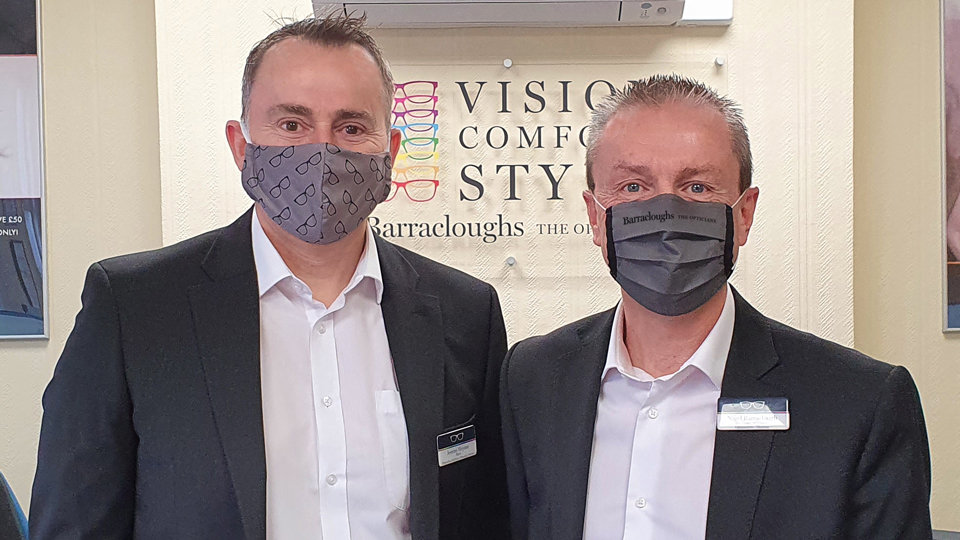
Changes in private and NHS appointments: Nigel Barraclough, contact lens director and optometrist at Barracloughs The Opticians, East Sussex, part of Hakim Group
“With COVID-19 we have had to allow more time for patients than ever before, resulting in seeing fewer per day. Our priority is to provide a more thorough service, including additional procedures as the norm. We plan to structure our testing routines to show differentiation between private and health service appointments, as we’ve historically done exactly the same procedure for the health service and private. I think seeing fewer patients in lockdown, with everything costing so much more and additional procedures in place, has really highlighted the fact that the NHS fee is just not sustainable.
“Our plan is to create eye care plans to give an alternative, as well as still providing the NHS offering, but perhaps on a more basic level.”
Remote care and adapting to new strategies: Jeremy Heynes, managing director and dispensing optician at Barracloughs The Opticians, East Sussex, part of Hakim Group
“It’s difficult at this stage to know what the situation is going to be regarding social distancing and mask wearing. We’re constantly reviewing everything, but it very much depends on what happens nationally with the Government and the professional body guidelines. We will be driven by those. It’s not going to go away overnight. I believe we will be adhering to certain procedures for some time.
“COVID-19 has shaken up the profession and made us revise the way we see patients, and we have had to find new strategies on how to adapt. In the longer term we will limit the number of patients we can see by spending more time with each individual.
“I also think there will definitely be an element of more remote care. For patients who can’t come in for any reason, we can triage over the phone and we will continue to do so. I envisage more video appointments and perhaps more flexibility with patient choice; it will all come down to what works best for them along with what works best for us.
“What we have discovered is that people really do like to come in and see us, particularly some older patients, who I think are partly using it as a reason to interact with others. There is a lot of loneliness right now. It's the one-to-one interaction and the interpersonal relationship for people who use services like ours. That’s really important, especially at the moment.”


Comments (0)
You must be logged in to join the discussion. Log in